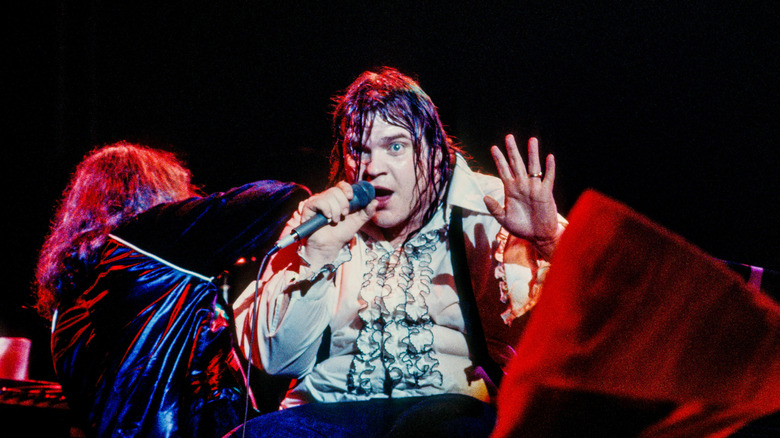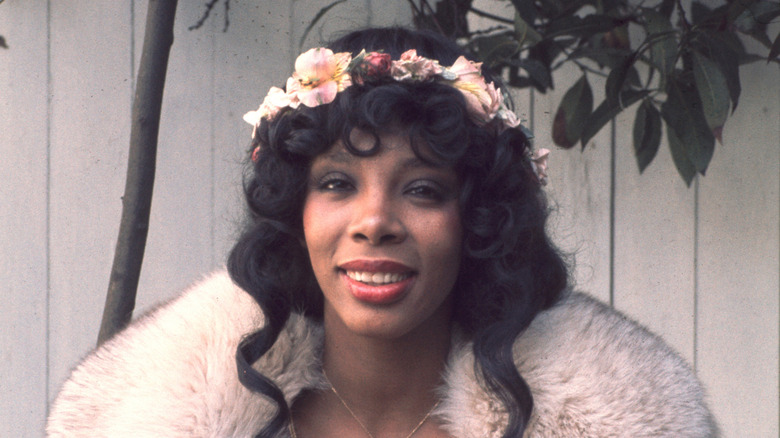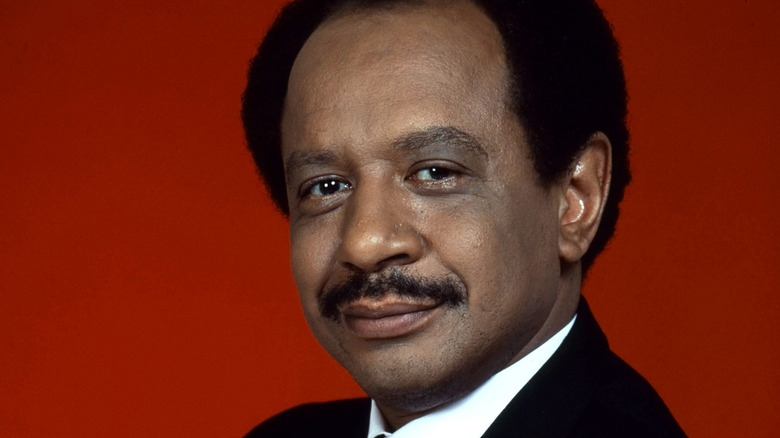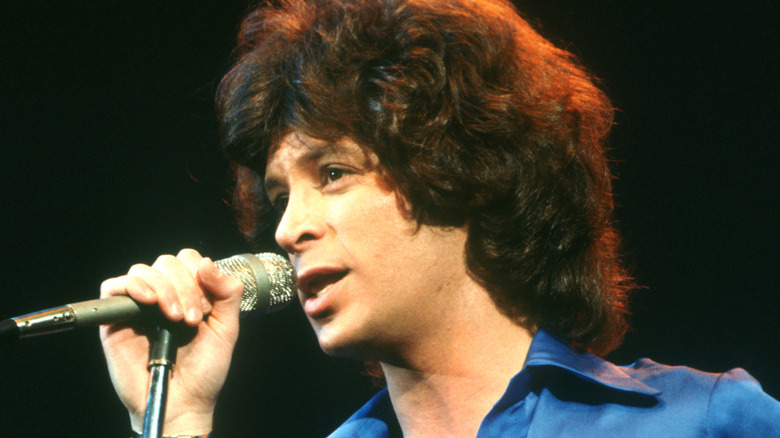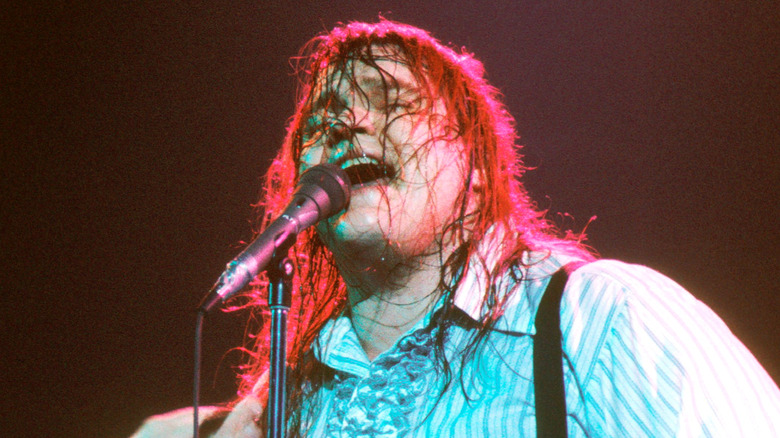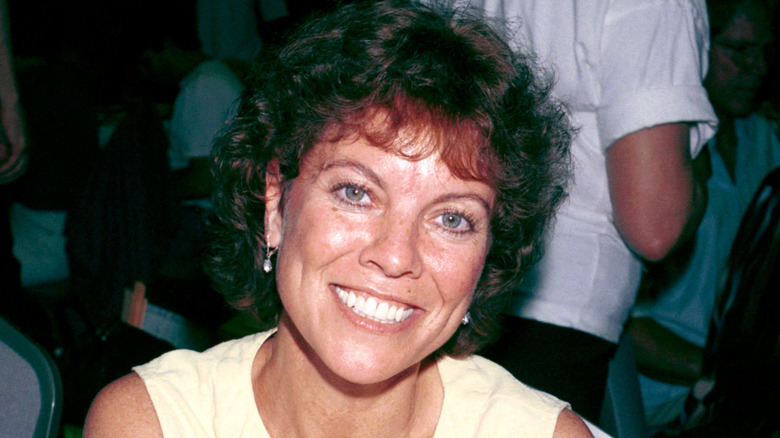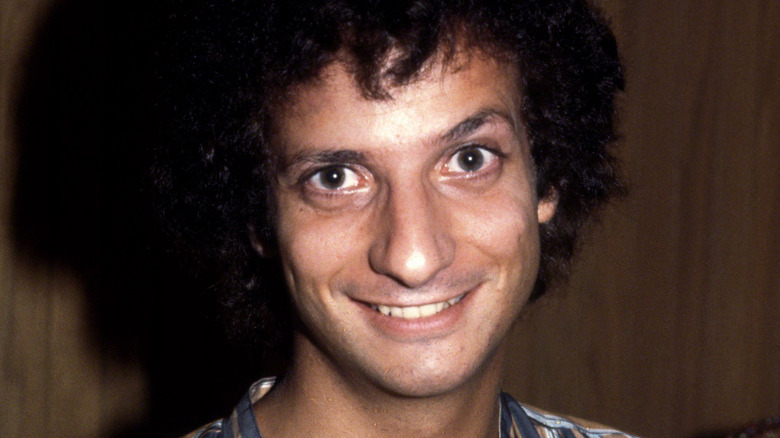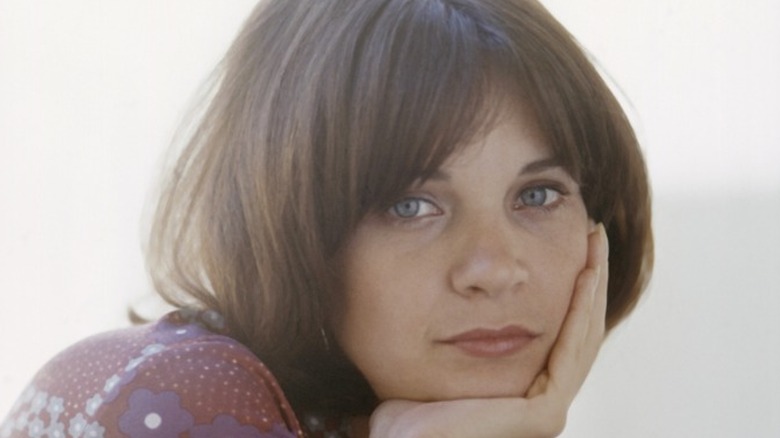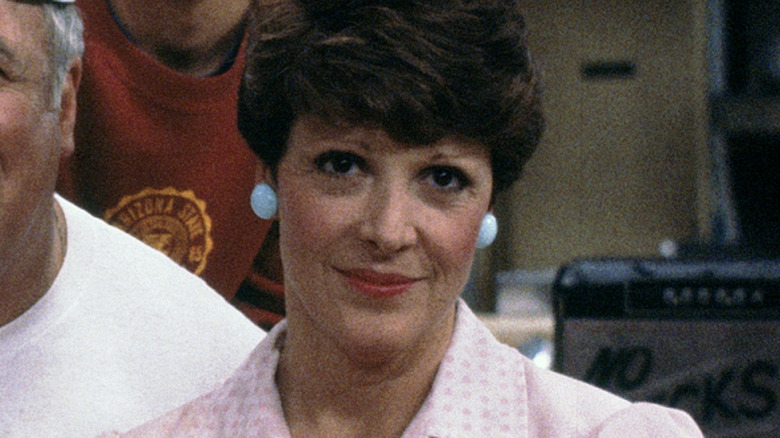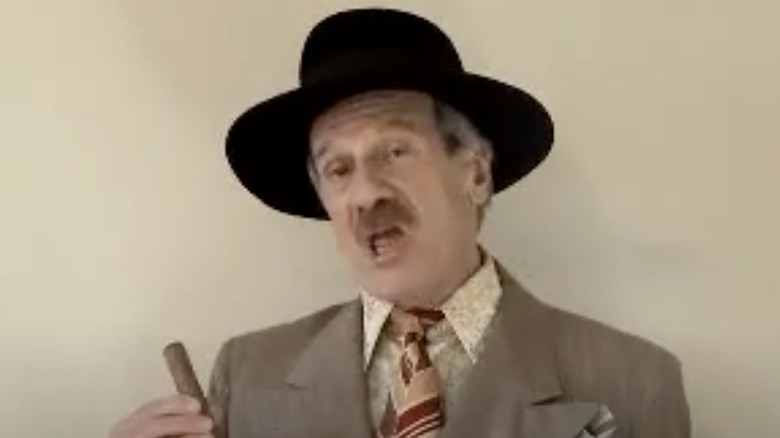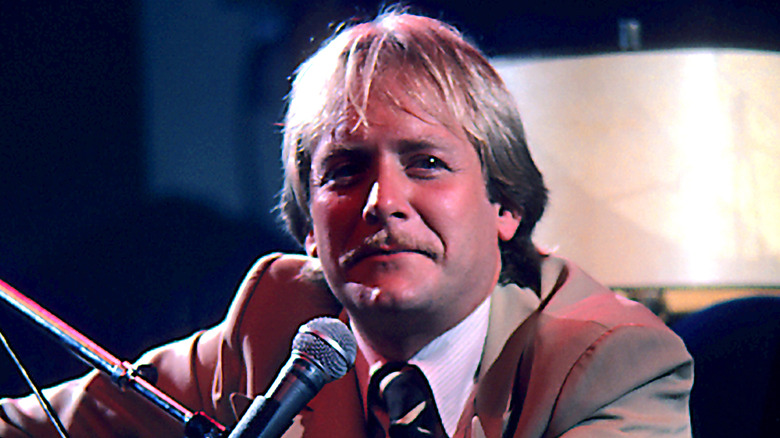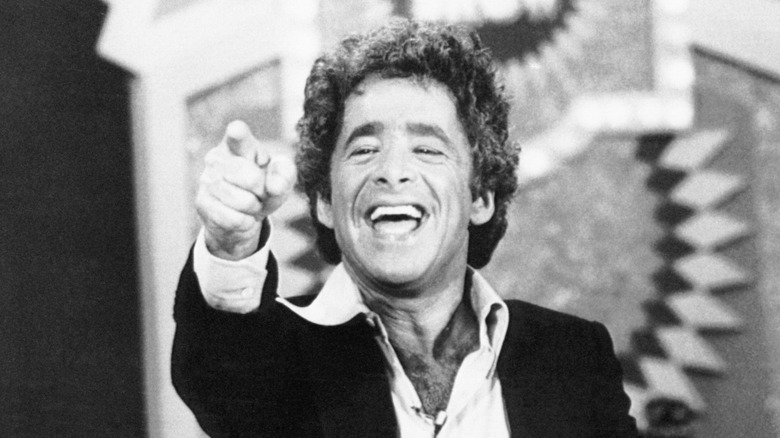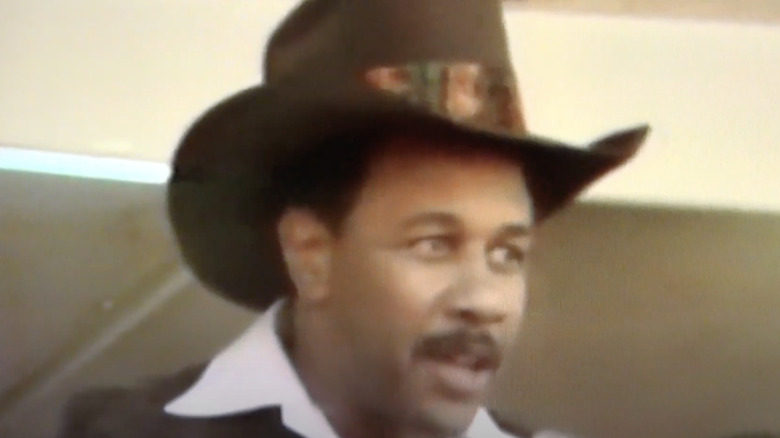'70s Stars Who Died And No One Noticed
The 1970s were a bountiful and varied time for pop culture. In the movies, massive blockbusters and modern masterpieces drew huge crowds. On TV, long-running sitcoms and dramas became the shows that would run on cable and on local channels for generations. In music, numerous genres collided and competed on the charts. Across pop culture, the entertainment of multiple generations set the standard by which all other entertainment would be judged, and in sports, the best athletes put up heroic stats and achievements that would overshadow those of their successors.
All of that was made by people, of course, and those who made the best songs, films, shows, and games of the decade of disco, bell-bottoms, and the Pet Rock became superstars and household names all over the planet. However, the 1970s were a very long time ago. Some of the most important hitmakers, performers, and artists of the decade didn't get to enjoy sustained mega-success into the subsequent decades.
As a result, those stars faded from the collective public view, and when they died, their deaths weren't as widely reported as they may have been if they'd happened in their heyday. Here are a whole bunch of mega-stars of the 1970s who died and didn't quite dominate the headlines when they did.
Donna Summer
It's both objectively true and reductive to call Donna Summer the "Queen of Disco," but the superlative fits. In 1975, she released "Love to Love You Baby," a sexually charged dance-floor odyssey that showed off Summer's remarkable voice, which pulled from soul, blues, gospel, and rock traditions. That was just the first of Summer's 16 singles to top the dance charts, many of which crossed over to the upper reaches of the mainstream pop chart, such as "I Feel Love," "Last Dance," "Bad Girls," and "Hot Stuff." When disco was on the way out, Summer transitioned to pop and soft rock, and continued to be a hit-maker in the 1980s with songs like "Love is in Control" and the anthemic "She Works Hard for the Money."
In one of the more tragic stories behind a Rock and Roll Hall of Fame induction, voters elected Summer into the hallowed musical institution in December 2012 — just seven months after the disco icon died. On May 17, 2012, Summer died of cancer. According to the singer's family, the cause of death was a rare form of lung cancer that isn't caused by smoking, nor was Summer a smoker. She was 63 years old.
Sherman Hemsley
"All in the Family" creator Norman Lear needed someone to play the foil to racist, working-class lead character Archie Bunker. When he saw Sherman Hemsley perform in the Broadway musical "Purlie" in 1970, he brought him on to play the irascible, fearless, and wealthy George Jefferson. Hemsley was so charismatic and undeniable that he got his own spinoff in 1975, "The Jeffersons," which found him verbally sparring with his family and neighbors in a New York high-rise. "The Jeffersons" ran for an entire decade, and about a year later, Hemsley was already back on network TV, portraying the George Jefferson-esque deacon Ernest Frye on the church-set NBC sitcom "Amen."
On July 24, 2012, Hemsley's nurse discovered the actor dead in his home in El Paso, Texas. The local medical examiner's office declared that Hemsley died of natural causes following a long period of illness, which was later revealed to be lung cancer. Hemsley was 74.
Eric Carmen
As one of the pioneers of the power pop sound heard throughout the decade, the Raspberries were one of the most important rock bands of the 1970s. At the forefront of the Ohio group, handling lead vocals and writing most of its songs, was Eric Carmen, who crooned and rocked his way through catchy, hooky, harmony-laden hits like "Go All the Way," "I Wanna Be with You," and "Overnight Sensation." After the Raspberries broke up mid-decade, Carmen went on to a successful career as a soft rock balladeer, responsible for the slow and woeful mega-smashes "All by Myself" and "Never Gonna Fall in Love Again" in the '70s, and the adult contemporary standards "Make Me Lose Control" and "Hungry Eyes" in the late 1980s.
In March 2024, Eric Carmen's official website broke the news that the musician had died. "It is with tremendous sadness that we share the heartbreaking news of the passing of Eric Carmen," his wife, Amy Carmen, wrote (via NPR). "It brought him great joy to know, that for decades, his music touched so many and will be his lasting legacy." He'd died in his sleep a day prior, but no cause of death was publicly disclosed. Carmen was 74.
Meat Loaf
In successive projects, a man with a tremendously powerful voice who went by the name of Meat Loaf brought rock to theater, and then theater to rock. Discovered in an early 1970s West Coast production of the hippie musical "Hair," the singer born Marvin Lee Aday recorded an album with co-star Stoney and then acted in a small stage musical composed by Jim Steinman. After Meat Loaf played biker Eddie in 1975's "The Rocky Horror Picture Show," the enduring cult classic film adapted from a stage rock musical, he teamed up with Steinman for the 1978 LP "Bat Out of Hell." Equal parts hard rock and rock opera, its elaborately written and brashly belted singles like "Paradise by the Dashboard Light" and "You Took the Words Right Out of My Mouth" made Meat Loaf a sensation, and the album sold 14 million copies. After falling out of the spotlight, Meat Loaf returned in 1993 with the No. 1 hit "I'd Do Anything for Love (But I Won't Do That)" and roles in films like "Fight Club" and "Spice World."
And then, the tragic real-life story of Meat Loaf came to a close. Aday lived with multiple serious medical conditions, including an irregular heartbeat and asthma, and in early 2022, he was hospitalized when he was diagnosed with COVID-19. Days later, Aday died on January 20 at the age of 74.
Erin Moran
By the time Erin Moran found her signature role in the 1970s, she'd already appeared on plenty of TV shows, like "Family Affair," "My Three Sons," "The Waltons," and "The F.B.I." But then in 1974, she landed the role of Richie Cunningham's quick-witted younger sister, Joanie, on one of the biggest sitcoms of all time, "Happy Days." Moran played Joanie throughout the run of the series until 1984, taking a break of a year or so to star in the spinoff "Joanie Loves Chachi."
While some "Happy Days" cast members went on to lasting success in Hollywood, Moran faced significant financial and health hardships in what would be her final years. After losing her home to foreclosure in 2010, Moran and her husband, Steve Fleischman, were forcibly evicted and they moved into a trailer in Indiana with Fleischman's mother. Evicted again in 2012 over excessive partying, Moran lived in a series of motels until she was diagnosed with squamous cell carcinoma in 2016. After the disease rendered Moran unable to speak, she was discovered unresponsive in April 2017. Pronounced dead by paramedics in Harrison County, Indiana, Moran was 56.
Ron Palillo
Mildly annoying but ultimately endearing teenage nerds are a TV staple. But well before Screech on "Saved by the Bell" or Steve Urkel on "Family Matters," the template was set by Arnold Horshack on "Welcome Back, Kotter." The 1975 to 1979 show was a vehicle for comedian Gabe Kaplan, portraying a teacher who goes back to his old high school to teach remedial social studies. But the young actors who played the students, a harmless gang called the Sweathogs, stole the show, perhaps none more so than Horshack. Ron Palillo played the littlest, weirdest, and most self-conscious Sweathog, known for enthusiastically raising his hand in class while shouting "Ooo! Ooo!" After the end of "Welcome Back, Kotter," Palillo worked steadily in film and TV, primarily as a voice actor in Saturday morning cartoons.
In August 2012, Palillo's agent, Scott Stander, told the media that his client had died near his home in Palm Beach Gardens, Florida, where he'd moved to be close to family and to work in theater. The cause of death was a heart attack; Palillo was 63 years old.
Cindy Williams
Cindy Williams started her career in the early 1970s, and with one of the decade's biggest hits. The New Hollywood movement of exciting, authorial filmmakers included George Lucas: his nostalgic 1973 comedy "American Graffiti" was a blockbuster, and the role of Laurie shot Williams to stardom. She followed that up with a role in another New Hollywood movie-maker's project, Francis Ford Coppola's "The Conversation." The '50s nostalgia boom, launched by "American Graffiti," led to the period piece "Happy Days" and its spinoff "Laverne and Shirley." After originating the character of Shirley Feeney on the former, she wound up playing the part for 158 episodes on the latter, which was TV's most watched program in the 1977-78 season. Williams left "Laverne and Shirley" in 1982 and worked regularly for the next four decades, primarily in TV sitcoms.
Following a short-term illness, Williams died on January 25, 2023, in Los Angeles. The actor was 75 years old.
Linda Lavin
In the 1960s, Linda Lavin made her mark on Broadway, starring in a succession of productions — both musicals and plays — until television beckoned. After a long arc as Det. Janice Wentworth on the police sitcom "Barney Miller," Lavin got to headline her own comedy series in 1976, "Alice," an adaptation of Martin Scorsese's 1974 film "Alice Doesn't Live Here Anymore." Lavin played a recently divorced mother and aspiring nightclub singer who winds up waiting tables in a Phoenix diner. "Alice" ran for nine years, after which Lavin returned to Broadway, made frequent TV guest star appearances, and took lead roles in short-lived shows, such as "Room for Two" and "Sean Saves the World."
Lavin worked up until her death, and she was in production on the at-the-time unreleased Hulu traditional sitcom "Mid-Century Modern." Recently diagnosed with lung cancer, Lavin died from complications of the disease in Los Angeles on December 29, 2024, later determined to be a cardiopulmonary arrest, or the stoppage of the heart. Lavin was 87.
Bill Saluga
To anyone born after 1980 or so, the greatest creation of comedian Bill Saluga is likely known only as a somewhat mystifying punchline on episodes of "The Simpsons" and "King of the Hill." On the first, Krusty the Clown laments the 1970s popularity of Raymond J. Johnson Jr., apparently a catchphrase comedian who delivered rhythmic routines based on his name. On the other, Bobby Hill finds a Raymond J. Johnson Jr. record and can't understand the humor in quips like "You can call me Ray, and you can call me J., but you don't have to call me Johnson!" Anyone conscious in the late 1970s was bombarded by Saluga, in character as the drawling, cigar-chomping Ray J. Johnson, doing his schtick on game shows, awards shows, talk shows, TV specials, variety shows, and commercials. Saluga amassed dozens of other acting credits, and he founded the influential Ace Trucking Company improv troupe, but he's most associated with that one character.
After an eight-month period of hospitalization to treat undisclosed medical issues, Saluga moved into hospice care and died on March 28, 2023, an event not revealed to the media until the following May. Saluga was 85 years old.
Bill Walton
Bill Walton simply loved basketball, and the 7-foot-tall center was so skilled and mentally adept at the game that he succeeded in every avenue of the sport that he attempted. He led his high school team to two California state championships, two national collegiate titles for UCLA (where he was named the country's best college basketball player three times), and after he was drafted with the No. 1 pick in the 1974 NBA Draft, he won the Portland Trail Blazers its first championship. A year later, he was named the NBA's Most Valuable Player. Persistent injuries limited his output in the 1980s, but he'd make a comeback in the 1985-1986 season with a title and Sixth Man of the Year Award with the Boston Celtics. Later inducted into the Naismith Memorial Basketball Hall of Fame and included on the NBA's 75th anniversary squad, Walton was also an Emmy Award-winning college and pro basketball commentator, earning a following for his wordy and wise monologues as much as he did for his insights.
Walton never made public the fact that he'd been living with colon cancer for many years. He died from the effects of disease at the age of 71 on May 27, 2024.
Martin Mull
A performance artist and experimental comedian as much as he was an actor, Martin Mull took his innovative and ironic approach to entertainment to the masses in a big way in the 1970s. With his band Martin Mull and His Fabulous Furniture, he released multiple albums of smart and funny music peppered with stand-up comedy and spoken word performances. In 1976, Mull made it to TV, portraying abusive spouse Garth Gimble, who dies in a comically brutal fashion on the very hot soap opera parody series "Mary Hartman, Mary Hartman." Audiences liked Mull so much that he returned as his character's twin brother, Barth Gimble, as the host of the late-night talk show parody "Fernwood 2-Night." In the '80s, '90s, and 2000s, Mull was a prolific actor, often a member of the casts of acclaimed comedy projects, including "Clue," "Roseanne," "Arrested Development," and "Veep."
According to the performer's wife, Wendy Mull, Martin Mull died on June 27, 2024, at his home in Los Angeles. A cause wasn't immediately revealed; Mull was 80 years old.
Chuck Barris
While his first blush of fame came from writing Freddy Cannon's 1962 hit pop song "Palisades Park," and though he'd later unconvincingly and notoriously claim to be a CIA hitman in his fanciful memoir "Confessions of a Dangerous Mind," Chuck Barris was beloved in the 1970s for creating and often hosting game shows that someone should've been fired for. In addition to bringing the world the purposely bad and extremely popular TV talent contest "The Gong Show," the snarky and aloof Barris also ushered in the pageant satire "The $1.98 Beauty Show," "The New Treasure Hunt," "How's Your Mother-in-Law?" and "3's a Crowd," which pitted a man's wife and secretary against once another to see who knew the guy the best.
On March 21, 2017, Barris died at the age of 87. According to the game show magnate's family and publicist, Barris died at home in Palisades Park, New York.
Willie Stargel
Willie Stargell played his entire 21-season Major League Baseball career with the Pittsburgh Pirates. His peak performance years overlapped with the 1970s; over that 10-year span, nobody hit more home runs than Stargell did, as he knocked out 296 of them. Other 1970s feats on Stargell's resume include leading the National League in home runs in 1971, the year he powered the Pirates to a World Series championship, and getting the most home runs, doubles, and RBIs in 1973. The six-time all-star closed out the decade with another World Series win for Pittsburgh in 1979.
In the final years of his life, Stargell was under medical care for a serious kidney problem. He'd checked into the New Hanover Regional Medical Center in Wilmington, North Carolina, where he died after a stroke on April 9, 2001, at about the same time that the Pirates publicly presented a statue of Stargell, one of its all-time greats, outside of its PNC Park facility. Stargell was 61 years old.
